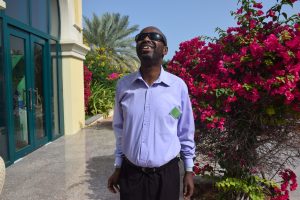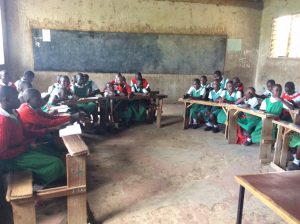Underdog sumo wrestler bursts into tears after remarkable win
30 Januari 2020 Asupan Warta / Newsfeed 0 CommentBeijing 25 years on: out of the shadows, into the mainstream
Asupan Warta / Newsfeed 0 CommentThis roundtable series will explore the key moments, actions, and actors that are needed to drive sustainable change on gender equality.
Read MoreCMS Issues Final Rule to Implement SUPPORT Act Coverage and Reimbursement of Opioid Treatment
Asupan Warta / Newsfeed 0 CommentHumboldt’s ‘Naturgemälde’ can pave the way for lasting agro-ecological transitions
29 Januari 2020 Asupan Warta / Newsfeed 0 CommentIssue Post January 29, 2020 Humboldt’s ‘Naturgemälde’ can pave the way for lasting agro-ecological transitions Kris A.G. Wyckhuys Buyung Hadi Rica Flor Jonathan Hellin Wei Zhang How the early 19th century naturalist and adventurer presaged today’s understanding of ecoystem management.
Read More
Sejumlah bangunan rusak terkena angin kencang di Blitar
Asupan Warta / Newsfeed 0 CommentSejumlah bangunan dan fasilitas publik di sejumlah daerah di Kabupaten Blitar, Jawa Timur rusak dilanda angin kencang disertai hujan deras yang menyebabkan banyak kerugian, Rabu (29/1). “Tadi terjadi hujan lebat disertai …
Read MoreHumanitarian actors call for US$158 million to respond to the humanitarian crisis in eastern Ukraine
Asupan Warta / Newsfeed 0 CommentSource: UN Office for the Coordination of Humanitarian Affairs Country: Ukraine The Humanitarian Response Plan lays out how 56 partners including UN agencies, national and international organizations aim to provide aid to 2 million vulnerable civilians in 2020. (Kyiv, 29 January 2020): The United Nations Resident and Humanitarian Coordinator in […]
Read More
Empat omnibus law ini ditargetkan rampung sebelum Lebaran
Asupan Warta / Newsfeed 0 CommentPemerintah genjot 4 omnibus law sebelum lebaran yakni perpajakan, cipta lapangan kerja, ibu kota negara, dan farmasi.
Read More
Inclusive Education Still Evades People with Disabilities
Asupan Warta / Newsfeed 0 CommentIdriss Moumin, president of the Association for the Physically Disabled in Djibouti, says that understanding, dignity and honouring of rights of the disabled are very important for inclusive education. Credit: Stella Paul/IPS By Stella PaulDJIBOUTI CITY, Jan 29 2020 (IPS) Neema Namdamu, 42, grew up in the village of Bukavu in […]
Read MoreClimate change demands a new form of agricultural production (Clarin)
Asupan Warta / Newsfeed 0 CommentJan 18, 2020 In the News Climate change demands a new form of agricultural production (Clarin) Nutrition Food Security Clarin (Argentina) published an article on what is needed in the future to feed populations while confronting climate change obstacles. IFPRI’s Global Food Policy Report 2019 was quoted regarding 2050 agricultural scenarios).
Read More
Addressing the Low Female Representation in STEM Education
Asupan Warta / Newsfeed 0 CommentData by the United Nations Educational, Scientific and Cultural Organization (UNESCO), shows that only 35 percent of students studying STEM in higher education globally are women. At primary and lower secondary levels, less than half of schools in sub-Saharan Africa have no electricity, computers or even access to the internet. […]
Read More